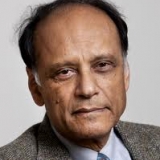This paper reviews and in part extends an emerging literature that integrates development and environmental thinking. It focuses on a small part of the literature: economic evaluation, and goes on to develop the notion of sustainable development and construct a unified language for sustainability and policy analyses.
It is shown that by economic growth we should mean growth in wealth – which is the social worth of an economy’s entire set of capital assets – not growth in gross domestic product nor the many ad hoc indicators of human development that have been proposed in recent years. The concept of wealth invites us to extend the notion of capital assets and the idea of investment well beyond conventional usage. The author also shows that by sustainable development we should mean development in which wealth (per head) adjusted for its distribution does not decline. This has radical implications for the way national accounts are prepared and interpreted. The author then provides an account of a recent publication that has put the theory to work by studying the composition of wealth accumulation in contemporary India. The study reveals that the entire architecture of contemporary development thinking is stacked against nature. These are still early days in the measurement of the wealth of nations, but both theory and the few empirical studies we now have at our disposal should substantially alter the way we interpret the progress and regress of nations.
